- Our Products
- Upper Extremity
 Amadeo Finger-Hand-Rehabilitation
Amadeo Finger-Hand-Rehabilitation
Amadeo is giving hands back their grip and fingers their finesse. Patients who are barely able or unable to grasp can perform hundreds of robot-assisted grasping movements. It won’t train a new Mozart. But it will help patients return to the piano, handwriting Christmas cards, and grabbing life firmly by the horns.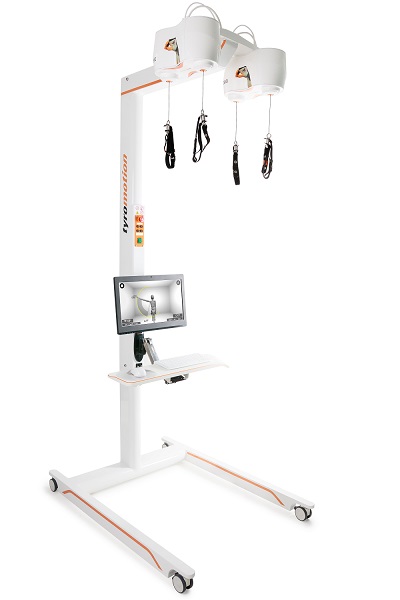 DiegoShoulder-Arm-Rehabiliation
DiegoShoulder-Arm-Rehabiliation
Diego is designed to strengthen what’s important. Whether proximal or distal training, Diego purposefully supports the rehabilitation of natural motion, allows the handling of everyday objects to be relearned, and is usable by adults and children alike. Myro Interactive and task-specific therapy
Myro Interactive and task-specific therapy
Myro is made for making humans get better! The sensor-based surface enables task-oriented rehabilitation with real objects, trains the patient’s cognitive abilities, and improves motor abilities of the upper extremity.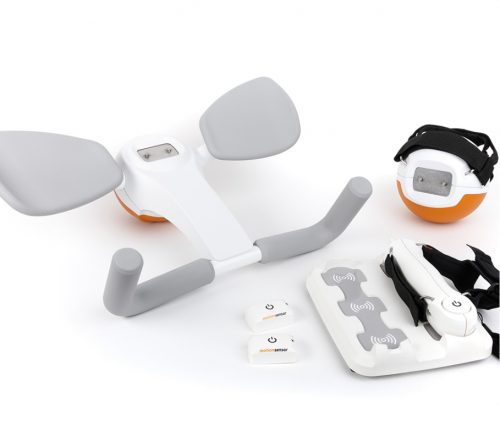 Pablo Upper Extremity Rehabilitation
Pablo Upper Extremity Rehabilitation
As a multifunctional rehabilitation device with comprehensive accessories, Pablo enhances classical therapy exercises with biofeedback, objective assessments, and gamification. It won´t train the next Picasso. But it will help patients to take back control of their lives.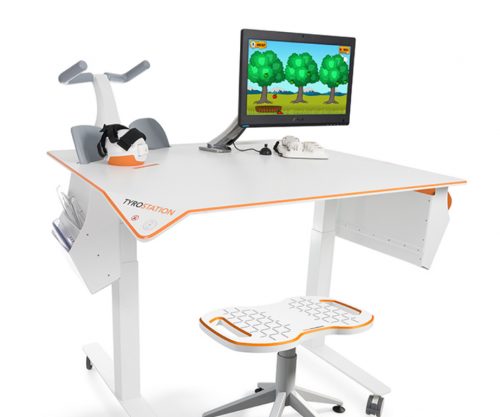 Tyrostation The perfect therapy setting
Tyrostation The perfect therapy setting
The Tyrostation is home to all components of Pablo and Tymo and provides ergonomic adaptability for patients. Sometimes, it´s about the little things in life – or therapy.
- Lower Extremity
 LexoGait and Locomotion
LexoGait and Locomotion
Lexo is a revolutionary gait trainer and impresses with fast setup, high patient activity and optimal trunk support. It encourages active participation and enables therapists to focus fully on their patients.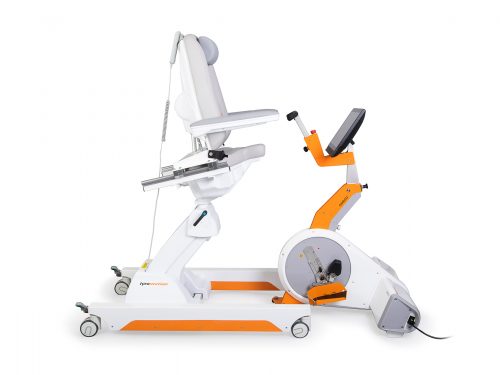 Omego Plus Gait training for the goals across all phases
Omego Plus Gait training for the goals across all phases
More than just a therapy bike! Omego Plus combines uni- and bilateral leg training, leg press, stepper, cycling & foot lift training in one device. Stride stronger with Omego Plus!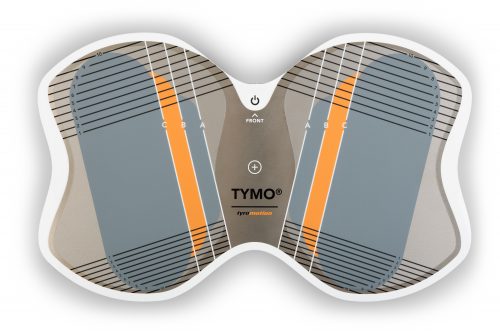 Tymo Balance training and postural control
Tymo Balance training and postural control
Small but powerful! Tymo is a versatile measurement and therapy system for the whole body. In addition to the standing position, Tymo offers a wide range of options for maximum variety during therapy.
- MTT-Line
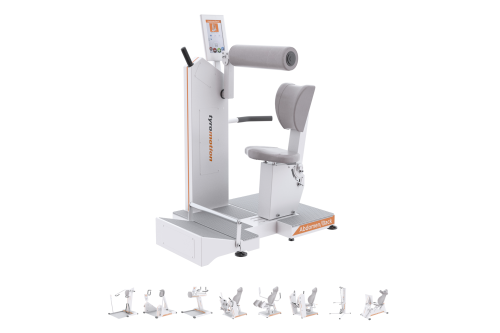 MTT-LineMedical training therapy
MTT-LineMedical training therapy
Get back in the game with the MTT-Line! The Medical Training Therapy devices are specifically designed to strengthen the six major muscle groups of the human body. Barrier free and maximum adjustability make the devices accessible for all types of patients.
- Software
 Maya Therapy Platform
Maya Therapy Platform
Maya reduces paperwork, standardizes documentation, and automates reporting, making administration effortless and efficient. Designed for therapists to work wonders!
- Upper Extremity
Health
How important is sleep in neurorehabilitation?
20. June 2022 ● 3 min. Reading time
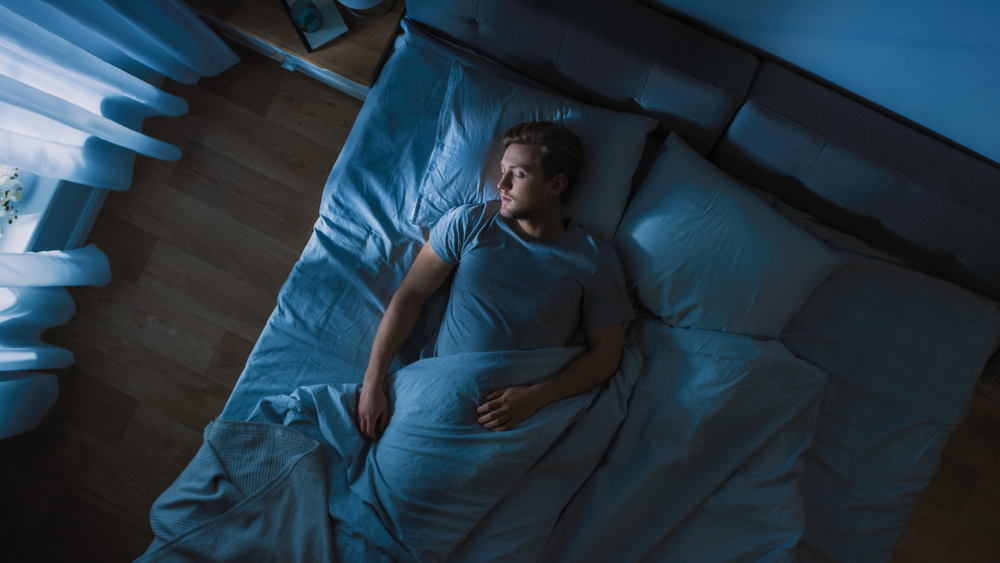
Stroke and traumatic brain injury: What does sleep have to do with it?
Following a stroke or a traumatic brain injury, many patients report poor sleep or develop sleep disorders such as insomnia, sleep-disordered breathing, or restless leg syndrome. Sleep disorders may have a negative impact on rehabilitation and the recovery of functional abilities.
Sufficient and restful sleep is important for short-term and long-term recovery after the acute and subacute phase of a stroke. A study showed that balanced sleep patterns can positively impact the cognitive abilities of patients.
Promoting sleep should be part of rehabilitation following a stroke or a traumatic brain injury. Cognitive behavior therapy can help patients manage the new situation and develop strategies for a healthy sleep-wake cycle.
Additionally, simple sleep hygiene tricks can help to improve sleep in neurological rehabilitation and therefore quality of life.
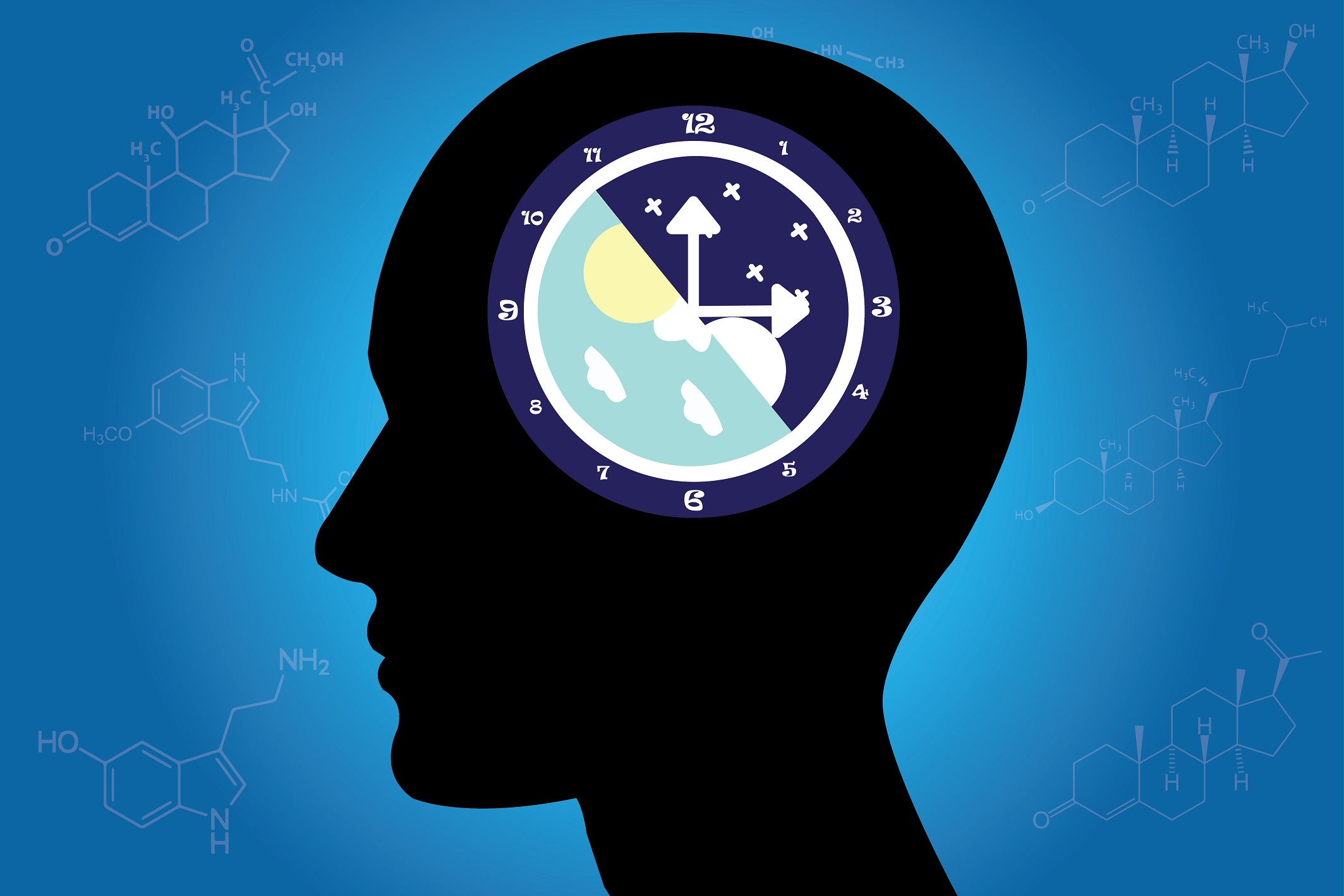
9 Tips for restful Sleep:
- Turn off potential sources of noise. Smartphones, tablets, and similar items should not be kept in the bedroom. At a hospital or a rehabilitation facility, put your smartphone into a drawer.
- Close curtains, blinds, or shutters and remove blinking lights, such as blinking alarm clocks, from the field of vision.
- Create a pleasant atmosphere where you sleep. When at home, use curtains or natural textiles to create a comfortable environment. At a hospital, items or pictures from home can increase comfort.
- Check side effects of medication. Some medications can affect sleep. Discuss options for improving your sleep with your doctor.
- Do not consume caffeine, alcohol, and heavy food in the evening.
- Reduce the amount of time spent in front of screens. Especially in the hour before going to bed, quiet activities like reading or listening to music foster restful sleep.
- When possible, spend at least half an hour per day outside. Natural light helps the body regulate the sleep-wake cycle.
- Find a night-time ritual. Regular rituals signal the body that it is time to relax. A warm bath, reading, relaxing music, or easy mobilization exercises can be an option.
- Don´t panic if you have trouble sleeping. Distraction methods, such as focusing on the breath or learning relaxation techniques can help.
After suffering a stroke or traumatic brain injury, it is normal for it to take some time for sleep to return to its natural rhythm. Listen carefully to your body and give it time to regenerate.
If your problems persist, discuss options for improving your sleep with your doctor.
Authorn: Michaela Partel
Sources:
Narrative review of sleep and stroke, 2020
Sleep Medicine: Stroke and Sleep, 2018
The role of sleep in recovery following ischemic stroke: A review of human and animal data, 2016
Correlation between sleep and cognitive functions after hemispheric ischaemic stroke, 2008
Evolution of sleep and sleep EEG after hemispheric stroke, 2002
You might also be interested in
4. April 2023
Health
Rehabilitation
Stroke nutrition guidelines for optimal health
Nutrition as the key part in health and well-being of stroke survivors A healthy, balanced …
21. March 2023
Rehabilitation
Kinesio taping in neurology as a useful therapy supplement
The Kinesio tape and its usefulness in neurological therapy What was originally known only from …
7. March 2023
Rehabilitation
Exercises against freezing of gait in Parkinson’s disease
When the legs freeze – how does the symptom “Freezing of Gait” manifest itself? Parkinson’s …



 Contact
Contact 

 Contact
Contact 

